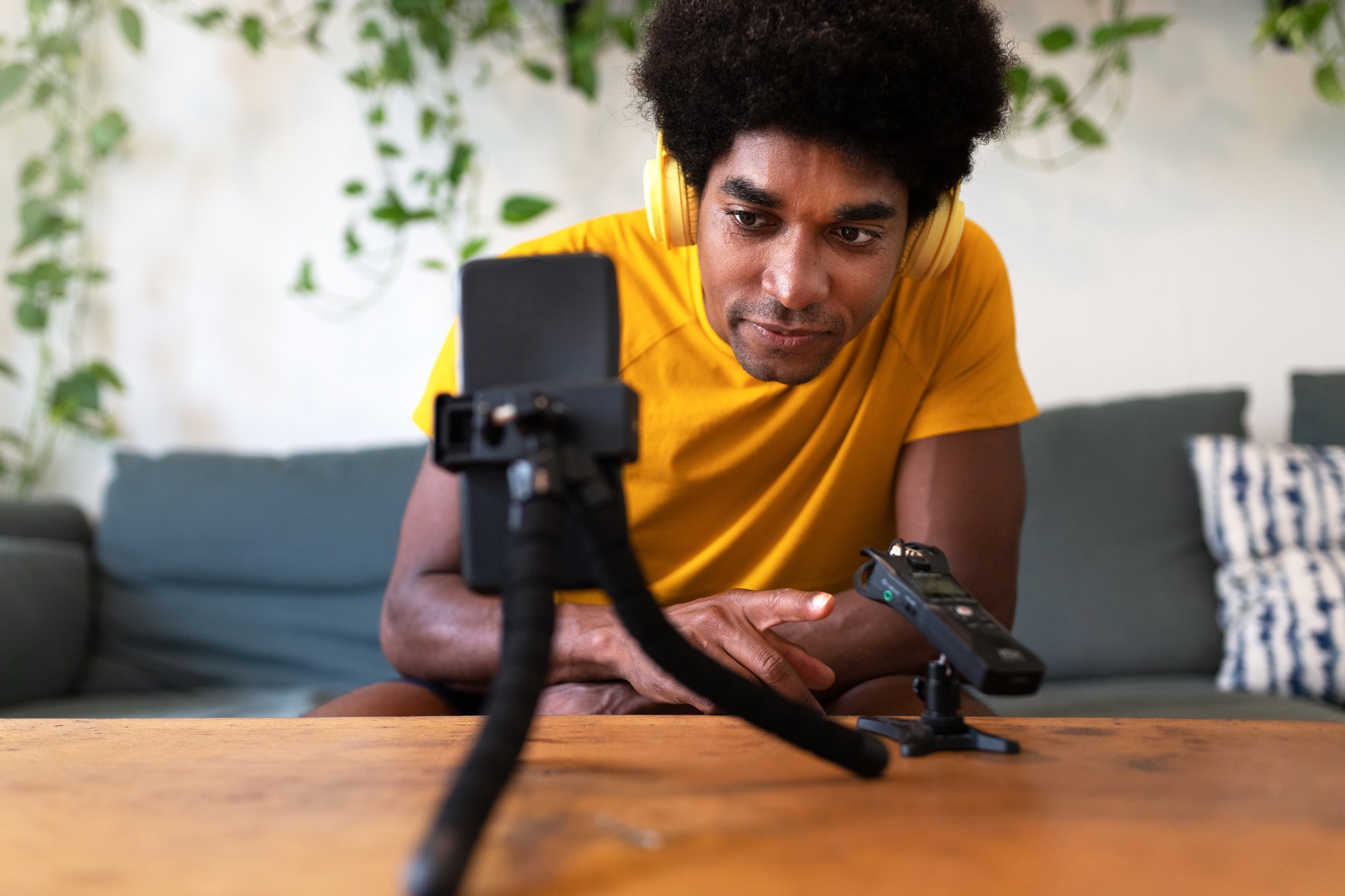Key Takeaways

- Cyberbullying Risks: Cyberbullying can harm your brand’s reputation, making it essential to address negative feedback promptly and foster a positive online environment.
- Misinformation Challenges: The rapid spread of misinformation on social media can confuse customers and damage trust. Regular monitoring and quick responses are crucial for maintaining credibility.
- Privacy Concerns: Protecting user data is vital for building customer trust. Implement strong security measures to safeguard personal information and ensure data privacy.
- Impact on Mental Health: Excessive social media use can lead to anxiety and depression. Limiting usage and promoting a supportive work culture can help alleviate these issues for small business owners.
- Social Comparison Effects: Social media fosters unhealthy comparisons among users, leading to feelings of inadequacy. Encouraging collaboration over competition can promote a healthier mindset for small business owners.
- Quality of Online Interactions: While social media facilitates connections, it often lacks the depth of face-to-face communication. Fostering meaningful relationships offline is essential for building strong personal and professional networks.
Social media has transformed how we connect and communicate, but it’s not all sunshine and rainbows. As you scroll through your feeds, you might notice a growing list of problems lurking beneath the surface. From cyberbullying and misinformation to privacy concerns and addiction, these issues can impact your mental health and well-being.
Navigating the digital landscape requires awareness and understanding. Recognizing the darker side of social media is the first step in protecting yourself and fostering healthier online habits. In this article, we’ll dive into the most pressing social media problems you should be aware of and explore practical solutions to help you reclaim your online experience.
Overview of Social Media Problems

Social media platforms, such as Facebook, X, TikTok, LinkedIn, and Pinterest, significantly influence your small business. However, they also present various challenges that can impact your operations and reputation.
Cyberbullying
Cyberbullying can harm your brand and its perceived value. Customers may express negative experiences publicly, affecting your credibility. Addressing complaints promptly helps mitigate this trend and demonstrates your commitment to customer service.
Misinformation
Misinformation spreads quickly on social media. False information about your products or services can lead to confusion and mistrust. Regularly monitoring social media channels allows you to respond swiftly and clarify any inaccuracies.
Privacy Concerns
Privacy concerns arise as users share personal information on these platforms. Data breaches can compromise customer trust. Implementing strong security measures protects customer data and builds confidence in your brand.
Addiction
Social media addiction affects how consumers engage with your brand. Users may spend excessive time online, becoming desensitized to your offerings. Creating engaging and concise content helps maintain their interest without overwhelming them.
Conclusion
Awareness of these social media problems is crucial for small businesses. Adopting practical strategies will minimize risks and enhance your online presence.
Impact on Mental Health

Social media platforms like Facebook, X, and TikTok can significantly influence mental health, especially among small business owners and their teams. Understanding these impacts is vital for fostering a healthier work environment.
Anxiety and Depression
Heavy social media use correlates with higher risks of anxiety and depression. A systematic review identifies that social networking sites increase the likelihood of psychological distress, particularly among adolescents, but the effects extend to adults as well. Research from the University of Pennsylvania indicates that limiting social media usage to 10 minutes per platform daily leads to marked decreases in depression and loneliness. For small businesses, recognizing this link ensures you prioritize mental health, creating a supportive workplace culture.
Social Comparison
Social media often fuels comparison among users. You’ve likely observed posts showcasing success, perfect images, or perceived perfection in others’ lives and businesses. Such content can lead to feelings of inadequacy and self-doubt. Small business owners may find themselves questioning their own progress when comparing it to competitors’ portrayals online. Regularly evaluating your social media consumption helps combat these feelings and promotes a healthier mindset, emphasizing collaboration over comparison.
Effects on Relationships

Social media significantly impacts relationships, influencing everything from personal connections to customer interactions for small businesses. Understanding these effects can help you navigate both your personal and professional networks more effectively.
Online Interactions vs. Real Life
Online interactions on platforms like Facebook, X, TikTok, LinkedIn, and Pinterest create a façade of connection. While you maintain relationships virtually, these interactions often lack the depth found in face-to-face communication. You may feel a stronger bond through shared content and messaging, but reflect on the quality of those connections. Relying solely on social media for relationships can lead to emotional distance, affecting your social skills in real-life situations.
Cyberbullying
Cyberbullying poses a serious threat to your online presence and mental well-being. As a small business owner, negative comments and harassment can damage your brand’s reputation. Many users experience the repercussions of cyberbullying, which often reflect a distorted reality, exacerbating feelings of inadequacy. Encourage a positive online environment by promoting respect and empathy among your followers, and take proactive steps to address any bullying behavior that may arise on your social media platforms.
Privacy Concerns

Privacy issues on social media significantly impact small businesses. Understanding these challenges helps you safeguard your company’s reputation and customer trust.
Data Security Issues
Social media platforms like Facebook, X, TikTok, LinkedIn, and Pinterest gather extensive data about users. This data includes interests, behaviors, and purchasing habits, which can endanger your business. Data breaches expose sensitive customer information, harming relationships and trust with your audience. Implementing robust security measures, such as strong passwords and two-factor authentication, minimizes these risks and protects your small business from potential fallout.
Surveillance and Control
Surveillance on social media isn’t just a concern for individuals; it’s essential for small businesses, too. Platforms track user activity, which can lead to targeted advertising. While this can benefit your marketing strategy, it may also feel invasive to users. Maintaining transparency about how you use data helps build trust. By fostering open communication about privacy practices, you ensure customers feel valued and secure, creating a loyal client base that supports your business.
Misinformation and Fake News

Misinformation and fake news pose significant challenges for small businesses using social media platforms like Facebook, X, TikTok, LinkedIn, and Pinterest. Understanding these issues can help you protect your brand and maintain customer trust.
Spread of False Information
Social media serves as a primary avenue for the dissemination of false information. Research shows that platform algorithms prioritize content that drives engagement, often favoring sensational or misleading posts. This engagement-based reward system encourages users to share without verifying facts, resulting in rampant misinformation across networks. For small businesses, a single instance of sharing inaccurate information can lead to customer confusion and damage your reputation. It’s crucial to verify the sources of information before sharing, as the rapid spread of false narratives can impact your brand’s credibility.
Consequences on Public Opinion
The consequences of misinformation extend beyond individual businesses, shaping public opinion on a larger scale. Misleading news can influence consumer behavior, potentially driving customers away from your products or services. When false information circulates widely, it erodes trust in established brands and creates an environment of skepticism. For small businesses, this skepticism can translate into lost sales and damaged relationships with customers. Monitoring your online presence and addressing misinformation swiftly can mitigate these risks, ensuring your audience remains informed and engaged.
Conclusion

Navigating the complexities of social media requires vigilance and proactive measures. By understanding the potential pitfalls like cyberbullying and misinformation, you can better protect your mental health and your business’s reputation. It’s crucial to foster a positive online environment and encourage open communication within your team.
Implementing strong security practices not only safeguards your data but also builds trust with your audience. Remember that social media should enhance connections rather than replace meaningful interactions. Prioritizing mental well-being and adopting healthier online habits can lead to a more fulfilling digital experience. Stay informed and take charge of your social media presence to ensure it serves you and your business effectively.
Frequently Asked Questions

What are the main issues associated with social media use?
Social media use can lead to several issues, including cyberbullying, misinformation, privacy concerns, and addiction. These factors can negatively impact mental health, relationships, and even brand reputation for businesses.
How does social media affect mental health?
Heavy social media use is linked to increased anxiety and depression, particularly among small business owners. Limiting usage and being aware of social comparison can improve mental well-being.
What role does misinformation play in social media?
Misinformation spreads rapidly on social media due to platform algorithms that favor sensational content. This can confuse customers, damage brand reputation, and erode public trust.
How can small businesses protect their reputation on social media?
Small businesses can protect their reputation by verifying information before sharing, monitoring online presence, and addressing misinformation promptly. Building trust through transparency and security measures is also crucial.
What are the privacy concerns for businesses using social media?
Privacy concerns arise from data breaches and the extensive user data collected by social media platforms. Implementing strong security measures and being transparent about data usage can help maintain customer trust.
How does social media impact relationships?
Social media can create a facade of connection but may lead to emotional distance and hinder real-life social skills. Relying solely on online interactions can affect the depth of relationships.
What is cyberbullying, and how does it affect businesses?
Cyberbullying involves harmful behavior directed at individuals online, which can damage both personal well-being and a brand’s credibility. Small businesses must foster a positive online environment to mitigate these risks.
What practical solutions can enhance online habits?
To foster healthier online habits, limit social media use, create awareness of its impact, and engage in positive online interactions. Establishing strong security practices also helps protect both users and businesses.
Image Via Envato: Hoverstock, msvyatkovska, kris_zarzh, xapdemolle, tonodiaz, SouthworksStock, varyapigu, edufigueres



